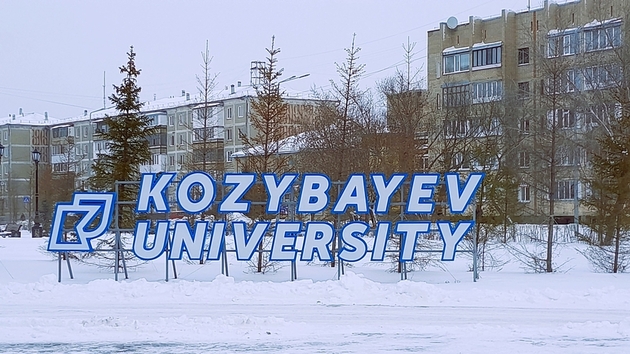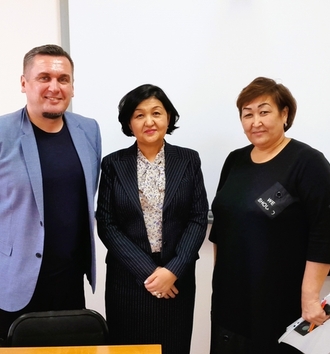A trip abroad that lasts several weeks may be a challenge for many people, especially when we are talking about a geographically distant and mentally different country such as Kazakhstan. However, in my case, due to personal experience, things were a little different – says Dr Jakub Doński-Lesiuk from the Department of Economic and Medical Informatics – I spent three years in Kazakhstan while I was still a student. I conducted research there. I also worked with actors in the local market later on, in what I call "professional business work". However, I will not hide the fact that being a lecturer abroad also increases your experience and can be a driving force for ideas for development, not only your own. In this case, it was not at all about the weather, with temperatures reaching minus 40 degrees due to the onset of the Siberian winter, but, for example, about cultural differences, the taming and overcoming of which is usually accompanied by emotions and the need to find the right "key".
Conducting regular classes with students, courses for academic staff, participating in the day-to-day activities of the university, which – unlike in Europe – also has specific tasks related to the upbringing of students, are just some of the responsibilities of a Visiting Professor.
Building relationships with new audiences is a very valuable experience. It is not the case that the lecturer 'comes in and says' what the curriculum provides. To make the message interesting and effective, it is necessary to create a level of understanding between the presenter and the audience, some form of matching, correlation. Only then is a mutually rewarding collaboration possible. In the case of Dr Doński-Lesiuk, the proof that relationship-building is possible, despite the differences, is his effectiveness, also promotional, related not so much to the objectives of his teaching work, but more sincerely to his scientific work.
I had the opportunity to talk about the specifics of the Polish labour market and promote Poland's economic achievements in a media interview. I had the opportunity to play the humorous role of 'rail expert', and rail is indeed my love, in a material by a very well-known blogger-traveller in the East boasting almost 4.5 million subscribers. Certainly, however, the greatest satisfaction was the unexpected arrival on the day of my departure of 'my group' of students who I had been teaching for four weeks. They came to say thank you and say goodbye, even though remote classes had just been ordered due to the freezing cold. When the vice-dean for education whispered that she didn't remember a situation where young people had said goodbye to a departing lecturer in this way, it occurred to me how much good happens when you present the attitude of open-mindedness.
All that remains is to wish all those involved in the education process that the experience accumulated by students and lecturers alike will contribute to their development and foster closer international cooperation. As the so far activities of the Faculty of Economics and Sociology of the University of Lodz have shown, this can bring both satisfaction and pro-development attitudes that are worth taking advantage of.
Source: Dr Jakub Doński-Lesiuk
Edit: Development Centre of the Faculty of Economics and Sociology, University of Lodz


